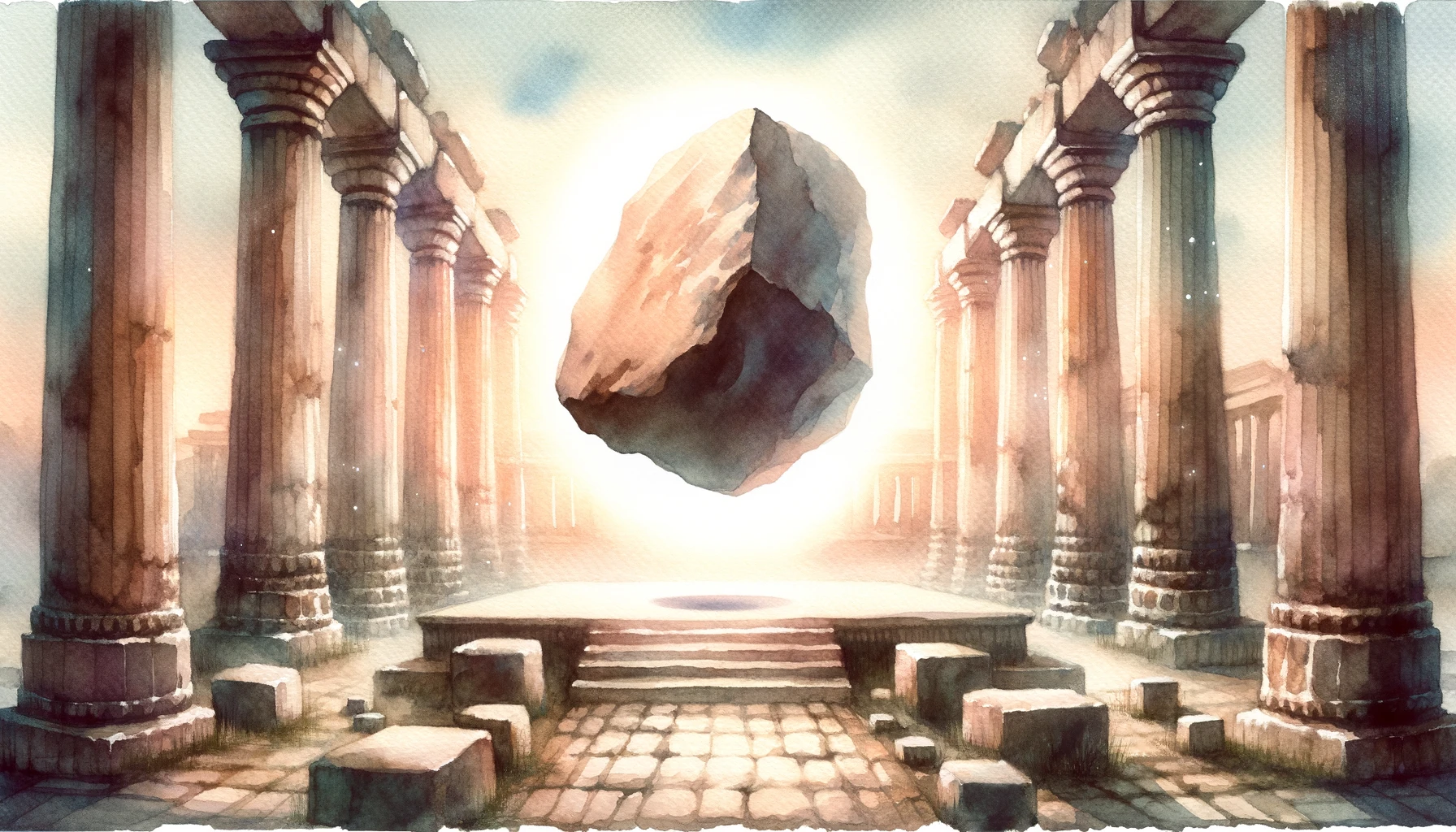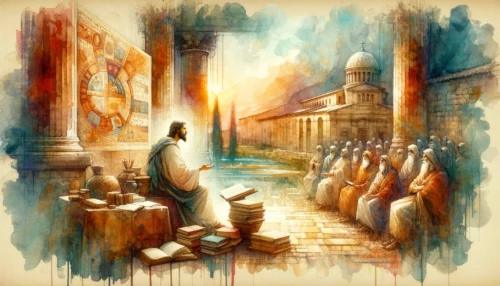Within the realms of human understanding, the concept of God’s omnipotence is often shrouded in mystery, leading to questions that seem to challenge the fundamental nature of God’s power. This inquiry, typically known as the omnipotence paradox, poses a provocative question: Can God create a rock so heavy that He Himself cannot move it? In seeking to answer this question, we come face to face with the awe-inspiring nature of God, His limitless power, and the mystery that lies in comprehending the divine.
Understanding the Omnipotence Paradox
Our journey into this intriguing question begins with understanding the omnipotence paradox. This paradox is a philosophical puzzle that springs from a misunderstanding of the nature of omnipotence, which means all-powerful. When we say that God is omnipotent, we mean that He possesses unlimited power and can do all things that are logically possible.
In the context of Christianity, God’s omnipotence is acknowledged in various parts of the Bible. The Bible affirms that God is the creator of all things from nothing (Genesis 1), He controls the natural world (Psalm 107), and can perform miraculous acts that defy natural laws, such as parting the Red Sea (Exodus 14). He also has power over life and death as seen in the resurrection of Jesus Christ (Romans 1:4).
The paradox emerges when we consider this question: Can God create a rock so heavy that He cannot move it? If He can’t, it appears that His power is limited. If He can, and there is now a rock that He cannot move, again it seems that His power is limited.
However, the paradox arises from a misunderstanding of what it truly means for God to be omnipotent. God’s omnipotence does not imply that He can do things that are logically impossible or contradictory. The idea of creating a rock so heavy that an all-powerful being cannot lift it is a logical contradiction, akin to the concept of a square circle.
Omnipotence means God has unlimited power, but it doesn’t mean He can do things that are logically impossible. The question about God creating a rock so heavy that He cannot move it is, therefore, not a legitimate question about His omnipotence but a logical contradiction in itself. Understanding this helps us navigate the paradox and sets the stage for a deeper exploration of the nature of God’s omnipotence.
The Nature of God’s Omnipotence
God’s omnipotence doesn’t include the ability to do what is logically impossible. So, let’s delve further into the nature of God’s omnipotence from a Christian perspective.
In the biblical context, God’s omnipotence is tied to His nature. It is not an arbitrary power that can be exercised in any direction; rather, it aligns with His character of goodness, justice, and love. God is all-powerful, but His power is always exercised in a way that is consistent with His nature (James 1:13).
God’s omnipotence is also inherently tied to His wisdom and knowledge. He is not only able to accomplish all things, but He also knows the best way to accomplish them. He is described as the one who “works out everything in conformity with the purpose of his will” (Ephesians 1:11). This suggests that His actions are not random or arbitrary but are guided by an ultimate purpose.
We also see that God’s omnipotence is not a power to be feared but a source of comfort and assurance for believers. In numerous instances, believers are comforted by the fact that no situation is beyond God’s power to intervene. He is able to provide, protect, heal, and deliver because He is omnipotent (Psalm 46:1-3).
Understanding God’s omnipotence involves recognizing that His power is not arbitrary or chaotic. It is a power perfectly balanced with His wisdom, exercised always in alignment with His character and purpose. His omnipotence is not a power that sparks fear but instead, it brings comfort and assurance to those who trust in Him. This understanding of God’s omnipotence allows us to see the omnipotence paradox in a new light.
Answering the Paradox: A Biblical Perspective
Armed with a deeper understanding of the nature of God’s omnipotence, we can now address the initial question: Can God create a rock so heavy that He cannot move it?
We know that God is all-powerful and can perform any task that is logically possible. However, the question in the paradox presents a logical contradiction – it’s akin to asking if God can make a square circle. It’s not a question of power but of logical consistency.
The Bible presents God as a logical being who is the author of reason and logic (Isaiah 1:18). God cannot do what is logically impossible not because His power is limited, but because such things don’t exist in reality. It is not a limit on His power, but rather an affirmation of the consistent and logical nature of His power.
So, the answer from a Biblical perspective is that the question itself is flawed. It’s not a genuine question about God’s omnipotence, but a question that misunderstands the nature of omnipotence. In essence, the question doesn’t challenge the omnipotence of God but rather affirms it.
The paradox, therefore, serves to highlight the incomprehensibility of God’s power to the human mind. It is a reminder that our human understanding falls short when it comes to fully grasping the divine nature of God. This doesn’t undermine our faith; rather, it enhances our awe and reverence of God.
In addressing the paradox, we’ve seen that God’s omnipotence is not about doing logically impossible things, but about having the power to accomplish all that is logically possible. The paradox doesn’t negate God’s omnipotence, but instead affirms the consistent, logical nature of His power. It reminds us that God’s ways and nature are far beyond our human comprehension, inspiring awe and reverence.
Awakening Awe in the Omnipotent
Throughout this journey, we’ve wrestled with a paradox that challenges our comprehension of God’s omnipotence. We’ve explored the nature of God’s omnipotence and understood that it doesn’t entail the ability to do what is logically impossible. We’ve seen that God’s power is not arbitrary but is always aligned with His wisdom and purpose, serving as a source of comfort and assurance to those who trust in Him.
To help further digest this topic, consider these questions:
- How does understanding the nature of God’s omnipotence impact your view of the divine?
- How can this understanding of God’s omnipotence bring comfort and assurance in your life?
- How can embracing the mystery of God’s nature enhance your worship and reverence of Him?
In the face of questions that challenge our understanding, let us not be disheartened. Instead, let us marvel at the grandeur of our God whose ways are higher than our ways, and whose thoughts are higher than our thoughts (Isaiah 55:9). Let this not diminish our faith, but rather strengthen it, as we stand in awe of the One who is truly omnipotent.














